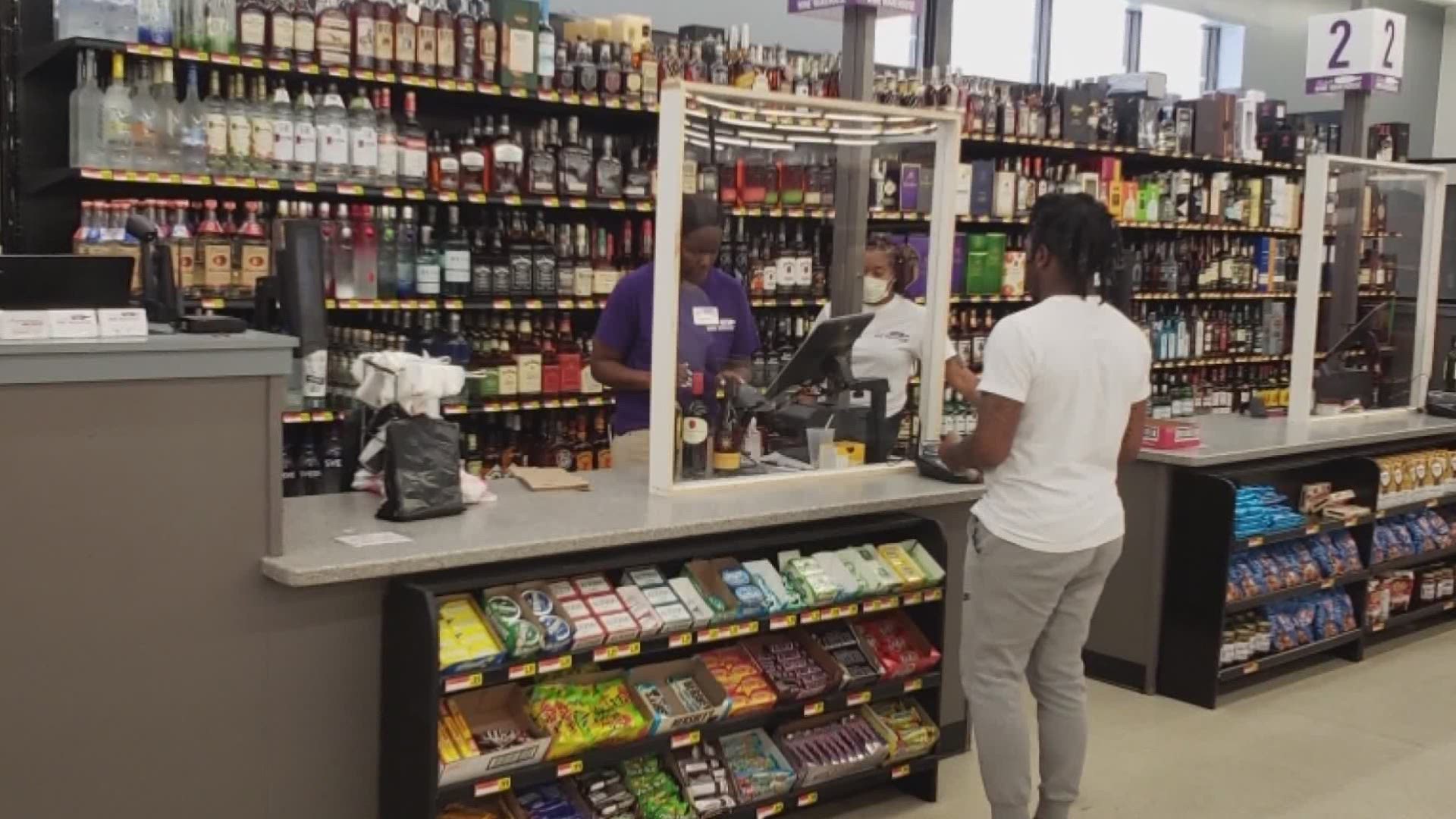NEW ORLEANS — Last year, sales of plexiglass shields tripled, reaching three-quarters of a billion dollars in U.S. sales alone.
Those clear barriers were thought to protect us against the spread of the coronavirus, but just a year later, science tells a different story.
Plexiglass is everywhere, in restaurants, casinos, and presidential debate stages. When you "make groceries," they make you stand behind plexiglass to check out. Same for convenience stores, and bars.
“It is frustrating to spend all the money we've spent on plexiglass partitions,” said Avenue Pub owner Polly Watts, in a story about trying to make her business safer, but still having to close during the days of tighter restrictions.
Struggling small business owners even shifted gears to stay afloat, making plexiglass shields for other businesses. Artist Peter Seltzer was one of them.
“People needed to get sneeze guards up fast. These front-line workers, and grocery stores, banks, and restaurants needed to interface with customers. So it was really busy,” said Peter Seltzer of Pete's Papercrafts, in 2020.
The owners of Classic Frame and Mat was another business that shifted to making plexiglass shields as well.
“At first, of course, we thought, well we may not survive this, right? So many very small family businesses are in that type of situation," said Paula Jordan, owner of Classic Frame and Mat, in an earlier story.
Then science started to emerge. The coronavirus is spread in microscopic aerosol particles that stay airborne longer, traveling much more than six feet, in indoor air conditioning and poor ventilation. So researchers said plexiglass gives a false sense of security.
“I've been in aerobiology for a really long time, and I've learned that air, and the things that are in our air, moves very much like water,” Dr. Chad Roy, Tulane Microbiologist and Immunologist said.
“Open-plan workspaces are really dangerous, and plexiglass isn't going to change it, because the air is going to circulate around the barriers,” Dr. Susan Hassig, Tulane Epidemiologist told us earlier.
And now there are more answers from research. Public health experts are saying no studies show plastic barriers control the virus. Some are calling them "hygiene theater.”
In schools, they don't correlate with lower infection rates, and some studies suggest desk shields may even raise infection risk slightly, because they block airflow.
Experts say money is better spent on improved ventilation and air filtration. So hindsight is 20/20, but especially about the year 2020.
Scientists said plexiglass barriers may help stop direct cough and sneeze large droplets, for people like check out workers at a grocery, who stay in one spot, face to face, with customers all day.
RELATED: Bill that says colleges, state agencies can't bar unvaccinated people heads to governor's desk

